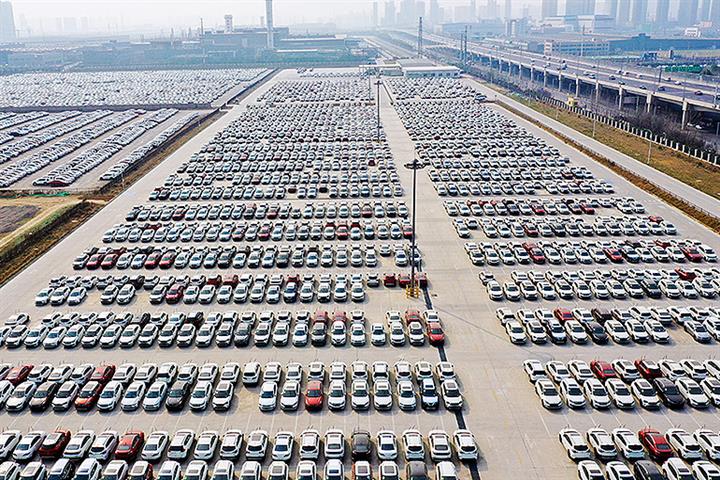 SAIC Volkswagen Sells More Cars in China Than FAW Volkswagen for First Time
SAIC Volkswagen Sells More Cars in China Than FAW Volkswagen for First Time(Yicai Global) Oct. 20 -- China's car charts were rearranged as SAIC Volkswagen Automotive overtook FAW Volkswagen Automobile for the first time this year as the largest vehicle seller in China in September amid foreign companies' tight chip supply.
The joint venture between Shanghai-based SAIC Motor and the German carmaker was leading the ranking of 15 biggest vendors last month, according to the China Passenger Car Association.
Meanwhile, Geely Automobile replaced SAIC General Motors to come in third. Two Chinese JVs of Japan's Toyota Motor, namely FAW Toyota Motor and GAC Toyota Motor, fell out of the top 10 amid severe chip shortages.
Despite ranking No. 2, Volkswagen's JV with Changchun-headquartered FAW Group was the biggest loser. FAW Volkswagen's retail sales dropped almost 49 percent to 108,000 units in September, the largest decline in the top 15. Close on the heels of the Audi manufacturer was SAIC-GM with a nearly 39 percent decline.
The shake-up is linked to the semiconductor crunch which has affected production. FAW Volkswagen's output halved each month from a year ago for nearly four straight months as of August, General Sales Manager Guo Yongfeng said to Yicai Global in September.
One missing core item can cause a lot of damage. FAW Volkswagen is reportedly lacking Bosche's Electronic Stability Program chip. The resurge in Covid-19 outbreaks in Malaysia has impacted the Gerlingen-based engineering company's production of many car parts.
Besides German firms, Japanese automotive manufacturers are bearing the brunt of the chip crisis. Last month, retail sales of FAW Toyota and GAC Toyota declined by more than 34 percent from a year ago.
The reasons are not surprising. The Toyota-headquartered firm said it will cut its global output in November by as much as 15 percent due to the semiconductor shortage and the power crunch in China, local media outlets reported earlier, citing the carmaker. Before this, the firm had said it will slash monthly production by 40 percent in October and September.
Local Wins
The disruption has driven a shift to domestic producers.
Mainstream JV brands in China recorded a 31-percent sales slump to 690,000 units last month from a year ago, according to the CPCA. Japanese carmakers' JVs had a 20.8 percent market share, down from 24.6 percent.
As foreign brands are moving down, domestic ones are gaining. Geely was No. 3 in the CPCA's ranking in September. BYD Auto climbed one spot higher to No. 7, making it to the top 10 for the second straight month. The Shenzhen-based firm's performance is supported by the booming new energy vehicle sector.
Quickly adjusting supply chains are key. "Chinese brands are more flexible than JV brands in chip purchasing and thus performed much better," CPCA Secretary-General Cui Dongshu said to Yicai Global.
Meanwhile, foreign brands have had to cut production more severely. These brands rely on a closed loop of suppliers while their Chinese rivals contact producers directly to buy chips, according to Cui.
Moreover, overseas brands' partners deliver chips around the world so there is a high possibility of the Chinese market taking a back seat in distribution schedules, the secretary-general added.
Editors: Liao Shumin, Emmi Laine, Xiao Yi